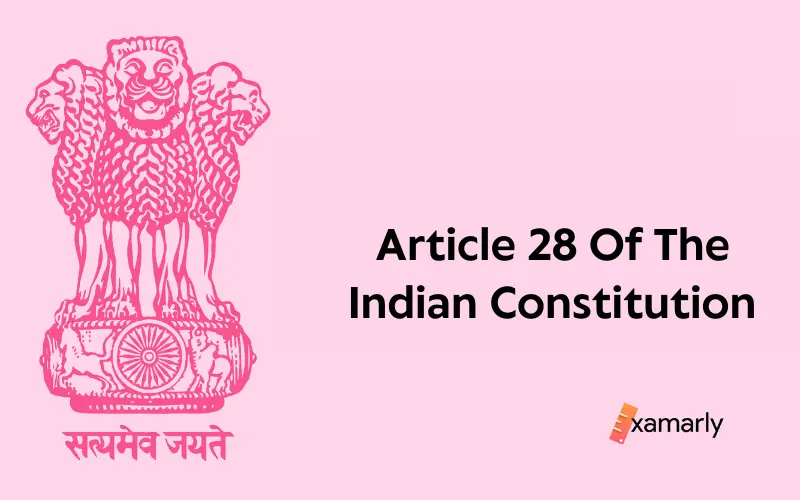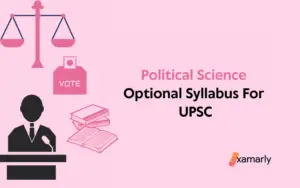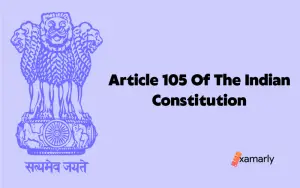India is home to a diverse group of people who come from different religious backgrounds. There are several religions that are followed by the citizens of India. Freedom of religion is a fundamental right guaranteed by the Constitution of India.
Let us delve deep into the basics of Article 28 of the Indian constitution to understand its role in contributing to the Right to freedom of religion.
What Is Secularism?
Secularism refers to separation from religion. It is regarded as a basic feature of the Indian Constitution.
- It calls for the isolation of religion from politics, society, the economy, and culture.
- Here, religion is purely a question of personal choice.
- India is a secular nation without an official religion.
- It can be concluded that all religions and faiths are treated equally and with the same respect in India.
- The term ‘secularism’ is also included in the Constitution’s Basic Structure. The 42nd Amendment to the Constitution added it.
- In Indian democracy, this idea is held in high regard.
- Secularism has been a fundamental component of Indian culture. This is due to the wide range of religions that have coexisted in India for centuries.
- In India, there is no distinction in terms of the authority of the various religious communities.
Right To Freedom Of Religion
The Constitution of India guarantees the right to freedom of religion to all Indians. It includes individuals as well as religious groups. This right is protected by the Constitution under four articles, namely Articles 25 to 28. It somewhat intersects with the concept of secularism.
Right Of Religion And Associated Provisions Of The Indian Constitution
- The Right to freedom of religion is enshrined in Articles 25 to 28 of the Indian Constitution.
- Article 25 of the Indian constitution is concerned with the freedom of conscience and free profession. It also deals with the practice and propagation of religion.
- Article 26 of the Indian constitution revolves around the freedom to manage affairs in matters of religion.
- Article 27 of the Indian constitution talks about freedom as to payment of taxes which is aimed at the propagation of any specific religion.
- Article 28 of the Indian constitution explores the freedom of attendance at religion-associated teaching or worship. It is strictly restricted to certain educational institutions.
Related – Article 28 in The Constitution Of India 1949
Article 28 Of The Indian Constitution: Protection Of Religious Rights And Freedom
Article 28 of the Indian constitution reads as “28. Freedom as to attendance at religious instruction or religious worship in certain educational institutions.
(1). No religious instruction shall be provided in any educational institution wholly maintained out of State funds
(2). Nothing in clause ( 1 ) shall apply to an educational institution which is administered by the State but has been established under any endowment or trust which requires that religious instruction shall be imparted in such institution
(3). No person attending any educational institution recognized by the State or receiving aid out of State funds shall be required to take part in any religious instruction that may be imparted in such institution or to attend any religious worship that may be conducted in such institution or in any premises attached thereto unless such person or, if such person is a minor, his guardian has given his consent thereto Cultural and Educational Rights.”
You Might Also Like – Article 23 Of The Indian Constitution: Prohibition Of Forced Labour
Analysis Of Article 28 Of The Indian Constitution
- Article 28 is concerned with the provision of freedom for attendance at religious instruction. It also refrains from providing any instructions for religious worship in selected educational institutions.
- This provision enables the propagation of religious instruction by educational institutions that are supported by religious organizations.
- This stipulates that no religious teaching shall be offered in educational institutes run by the State.
- The aforementioned clause does not apply to educational institutions managed by the State but founded according to any endowment or trust that mandates the imparting of religious instruction in such institutions (that no religious instruction shall be provided).
- Anyone who attends an educational institution that has received state recognition or receives financial aid from the State is not obligated to take part in any religious teaching that may be offered there. Such individuals are not obliged to attend religious worship there unless they have given their agreement. When it comes to minors, the guardians are supposed to grant their approval for the same.
- Therefore, it can also been seen that Article 28 makes a distinction between four categories of educational institutions:
- The first type of institution is entirely supported by the State (Religious instruction is completely prohibited)
- The second type of institution is run by the State but founded by any endowment or trust (Religious instruction is permitted)
- The third type of institution is the one that the State has approved (Religious instruction is permitted on a voluntary basis)
- The fourth type of institution is the one that receives State funding (Religious instruction is permitted on a voluntary basis)
Summing Up
India is among the most diverse country with respect to religious diversity. Being a secular country, it does not have a national religion. Each individual is free to pick, practice, promote, and even change their individual religion and religious philosophy.
However, the constitution imposes some limitations on these rights, thus they are not uncontested. No one is allowed to act in a way that violates state policy, causes unrest, or fosters intolerance among Indians in the name of their religion.
Article 28 explores the freedom of attendance at religion-associated teaching or worship. It is strictly restricted to certain educational institutions.
The article makes a distinction between four categories of educational institutions. Educational institutes supported completely by the State, or run by the State but founded by any endowment or trust, or approved by the State, or one that receives funding from the State defines the four categories of educational institutions.
FAQs
Q. What does the term ‘secularism’ mean?
Secularism refers to separation from religion.
Q. Which constitutional amendment added the term ‘secular’ added to the Indian Constitution?
The Constitution (42nd Amendment) Act, 1976, added the term ‘secular’ to the Indian Constitution.
Q. Right to freedom of religion is covered under which articles of the Indian Constitution?
Articles 25 to Article 28 of the Indian Constitution propagate the right to freedom of religion in their respective ways.






